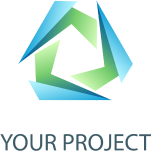Focus.tech
We are your trusted partner for outsourcing solutions that drive efficiency, reduce costs, and propel your business forward.
With a proven track record of excellence, we specialize in providing top‑notch testing services to businesses of all sizes.
SERVICES
Manual Testing
Manual testing involves the process of evaluating software applications or systems manually, without the use of automation tools. Each type of manual testing serves a unique purpose in the quality assurance process, helping to identify defects, ensure the software functions as intended, and provide a positive user experience. The choice of which types to employ depends on the project's requirements and goals.
For more information please contact our team and request consultation on how we can help you. There
are
various types of manual testing we can provide your organization, each serving a specific purpose in
the
software testing process.

Here are our main types of manual testing:
show all tabs
-
Functional Testing
This type of testing verifies whether the software functions according to its specifications. Testers execute test cases to ensure that the application performs the expected functions correctly.
-
UI/UX Testing
UI testing focuses on the visual aspects of the software. Testers assess the graphical user interface (GUI), ensuring it is user-friendly and that elements such as buttons, menus, and screens are aesthetically pleasing and functional. Usability testing is a core component of UX testing. It involves observing users as they interact with the product and collecting feedback on how easy it is for them to accomplish specific tasks.
-
Compatibility Testing
This type of testing examines how the software performs on various platforms, browsers, and devices. It ensures that the application works consistently across different environments.
-
Beta Testing
Alpha testing is usually conducted by an internal team, while beta testing involves a select group of external users. These tests aim to identify issues from the user perspective before a broader release.
-
Regression Testing
Regression testing is performed to verify that new code changes have not negatively impacted existing functionality. Testers re-run test cases to identify any unintended side effects.
-
API Testing
API testing is essential for verifying the reliability and integrity of APIs, which are used in a wide range of applications, including web and mobile apps, IoT devices, cloud services, and more. It helps identify issues early in the development cycle and ensures that APIs work as expected in production, fostering seamless integration between different software components and systems.
-
User Acceptance Testing (UAT)
This testing phase involves the end‑users or stakeholders, who validate whether the software meets their requirements and is ready for deployment.
-
Exploratory Testing
Exploratory testing is unscripted and focuses on the tester's intuition and creativity. Testers explore the application in an ad‑hoc manner to uncover unexpected issues.

QA Training
We also can provide training for your team to help them improve their skills and learn how to maintain and contribute to the automation framework with following tools and programming languages:
-
Selenium & Java (JUnit, Maven, TestNG)
-
Selenium & Python (Allure Report, Pytest)
-
Cypress & JavaScript (Mocha, Chai, Mochawesome reports)
-
Playwright & JavaScript (Allure Report)
-
Postman / API
QA Automation
QA automation refers to the use of software tools and scripts to automate testing processes and verify the quality and functionality of software applications. It is an essential component of the software development and testing life cycle, aimed at improving testing efficiency, repeatability, and accuracy. We can build testing frameworks from scratch with following tools and programming languages:
-
Java & Selenium, JUnit, Maven, TestNG
-
Python & Selenium, Pytest, Allure Report
-
JavaScript & Cypress, Mocha, Chai, Mochawesome reports
-
JavaScript & Playwright, Allure Report
-
API / Postman

What we can provide within the QA Automation service:
show all tabs
-
Test Script Creation
Automation engineers create test scripts using specialized automation tools or scripting languages. These scripts are a set of instructions that define the test cases, including the sequence of actions, expected outcomes, and validation criteria.
-
Validation and Assertions
The automation script contains validation points or assertions to check whether the actual results match the expected results. If discrepancies are detected, the test is marked as failed, and the automation tool generates a report.
-
Regression Testing
Automation is highly valuable for regression testing. When code changes are made, automation scripts can quickly and efficiently verify that existing functionality has not been adversely affected by the updates.
-
Continuous Integration and Deployment (CI/CD) Integration
Automation can be seamlessly integrated into CI/CD pipelines, allowing tests to run automatically as new code is pushed to the repository. This ensures early detection of issues and enables faster delivery of high‑quality software.
-
Test Data Management
Automation requires test data and its maintenance for accurate test execution.
-
Test Execution
Automation tools execute the test scripts automatically. During execution, the tool interacts with the software application just like a human user would, simulating user interactions such as clicking buttons, entering data, and navigating through the application.
-
Reporting
Automation tools generate detailed reports after each test run, providing information on test status, test case execution times, and any issues encountered during testing. These reports are crucial for identifying and addressing defects.
-
Parallel Testing
Automation tools can execute multiple test cases in parallel, which significantly reduces the time required for comprehensive testing, especially in large and complex applications.
-
Maintenance
Automation scripts need regular maintenance to accommodate changes in the application's user interface, functionality, and test data. Keeping scripts up to date is essential for long‑term efficiency.
-
Documentation
Document your framework's setup, configuration, and usage for team members and new testers.
In summary, QA automation streamlines the testing process, reduces human error, and accelerates testing cycles. It is especially effective for repetitive and time‑consuming testing tasks, ensuring the software meets quality standards and is ready for release. However, it's important to use automation judiciously, as not all testing activities can or should be automated. Manual testing is still essential for exploratory testing, usability testing, and other aspects of quality assurance that require a human touch. You choose what your organization needs and you always can consult with our QA Engineers to select the right decision.

QA Consulting
We provide QA consulting services in different situations, such as:
-
Choose the right testing strategy
-
Choose between different testing tools and programming languages
-
Choose what types of testing are best align with your organization needs
-
Help with CI/CD configurations
Test Documentation
Effective test documentation is a critical aspect of software testing as it ensures that testing is well‑structured, thorough, and transparent. It helps teams track progress, communicate issues, and make informed decisions throughout the testing process.
Test documentation, also known as testing documentation, refers to the set of documents and artifacts created and maintained during the software testing process. These documents provide a structured and organized way to plan, design, execute, and report on software testing activities. Test documentation is essential for quality assurance and software testing efforts as it helps ensure transparency, repeatability, and effective communication among team members.

Some common types of test documentation we provide:
show all tabs
-
Test Plans
A test plan is a comprehensive document that outlines the overall testing strategy, scope, objectives, resources, schedules, and deliverables. It provides a roadmap for how testing will be conducted and is created before the testing process begins.
-
Test Cases
Test cases are detailed instructions for executing specific tests. Each test case specifies input data, expected results, and the steps to be taken during testing. Test cases ensure that testing is thorough and systematic.
-
Test Execution Reports
Test execution reports provide detailed records of test case execution, including which test cases were executed, their status (pass/fail), and any defects or issues encountered during testing.
-
Test Metrics and Metrics Reports
Test metrics are measurements and key performance indicators related to testing activities. Metrics reports provide data and analysis on the effectiveness and efficiency of the testing process.
-
Test Documentation Review Records
Records of reviews conducted on test documentation to ensure completeness, accuracy, and adherence to testing standards.
-
Test Strategy
The test strategy document provides an overarching strategy that guides the development of detailed test plans. It defines the testing approach, testing levels, and key quality goals.
-
Traceability Matrix
A traceability matrix links test cases to requirements, helping to ensure that all specified requirements are covered by test cases and that no requirements are overlooked.
-
Defect Reports
Defect reports document any issues, bugs, or defects found during testing. They typically include information on the defect's severity, steps to reproduce it, and any attachments, such as screenshots or logs.
-
Risk Assessment and Mitigation Plans
Documents that identify potential risks to the testing process and how those risks will be mitigated or managed.
PROJECTS
ABOUT US

Our Background
Founded in 2022, Focus.Tech was established from a passion for technology and a vision to enhance software reliability and performance. Our journey began with a small group of dedicated professionals and has grown into a robust team of QA experts serving a diverse range of industries.
Our Mission
Our mission is to empower businesses with flawless software solutions through exceptional QA services. We aim to be the go-to partner for companies seeking to enhance their software quality and user satisfaction.
Why Choose Us?
Choosing Focus.Tech means partnering with a dedicated team that enhances and accelerates your software development processes, ensuring you achieve the highest quality. Here’s why collaborating with us is beneficial:
- Accelerate Your Processes: Our expert QA team employs streamlined methodologies and cutting‑edge tools to quickly identify and resolve issues, significantly reducing your software development time.
- Seamless Integration: We integrate effortlessly with your existing development team, providing thorough QA support without disrupting your workflow.
- No Need to Hire Extra Staff: By partnering with us, you avoid the costs and complexities of recruiting, training, and maintaining an in‑house QA team. We provide all the expertise you need.
- Flexible Engagement Models: Whether you need us for a specific project or ongoing support, our flexible engagement models ensure you get exactly what you need without any unnecessary expenses.
- Optimize Your Resources: Our efficient QA processes help optimize your resources, allowing your team to focus on core development tasks while we handle the quality assurance.
- Enhanced Product Quality: We meticulously test every aspect of your software, ensuring that it meets the highest standards of quality and reliability before it reaches your users.
CONTACT US




